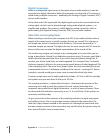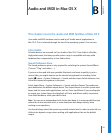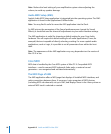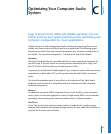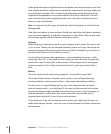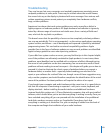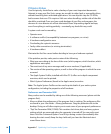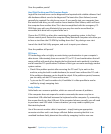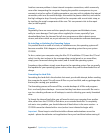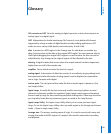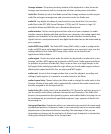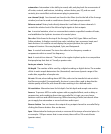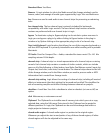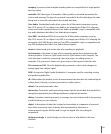
86 Appendix C Optimizing Your Computer Audio System
Another common problem is loose internal computer connections, which commonly
occur after transporting the computer. Keeping the possible consequences to your
warranty in mind, as well as all safety precautions, you may wish to refasten the internal
connectors, with care. Be careful though: disconnect the power cable first, and wait for
the high voltage to drop. Ground yourself to the computer with an anti-static strap, or
by touching the metal components of the case. This can prevent visits to the repair
man (or the hospital).
Viruses
Regrettably, there are some malicious people who program and distribute viruses,
solely to cause damage. Check your drives regularly for viruses, especially if you
download data from the Internet. Not all virus programs are able to detect macro
viruses, and others which are, as yet unknown, to virus protection software developers.
Re-installing or Updating the Operating System
It is possible that as a result of a crash, or installation error, the operating system will
become unusable. If this happens, re-install the operating system from your system
CD-ROM.
To do so, restart your computer using the Mac OS X Installation CD (insert the CD and
select it as the start volume in the corresponding control panel; or on newer Macs,
simply press Command during the restart) and re-install the operating system.
Sometimes, the problems simply come down to the operating system. You can usually
find updates for your operating system online, where they can be downloaded free of
charge.
Formatting the Hard Disk
Formatting the hard disk is the absolute last resort you should attempt, before sending
the computer for repair. This will erase all files on your hard disk, and any garbage data
that may be causing your problems.
The formatting process will erase all files, so make backups of all files and programs
first—and verify these backups—to ensure that they have been successful. Be sure to
run virus checking software on all backups, to avoid re-infecting your newly formatted
drive.
To format the internal hard drive, you will need to start your computer from another
drive, either from the CD-ROM, a flash drive, or an external hard disk. To completely
rule out a virus problem, you should reformat all hard drives in the same session—a
CD-ROM cannot be infected with a virus (unless it was infected to begin with).
Important: Please keep in mind that invisible software authorizations cannot be
copied—please de-authorize such applications from your hard drive before erasing it!



